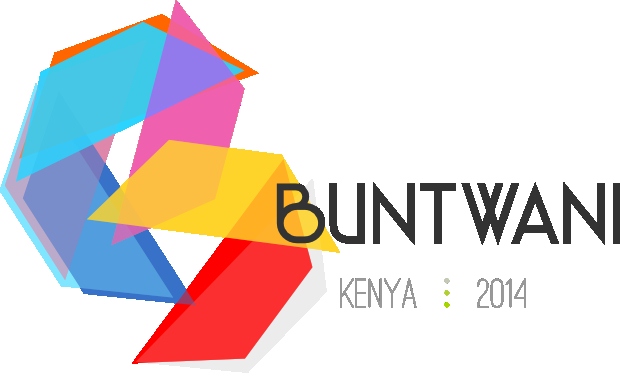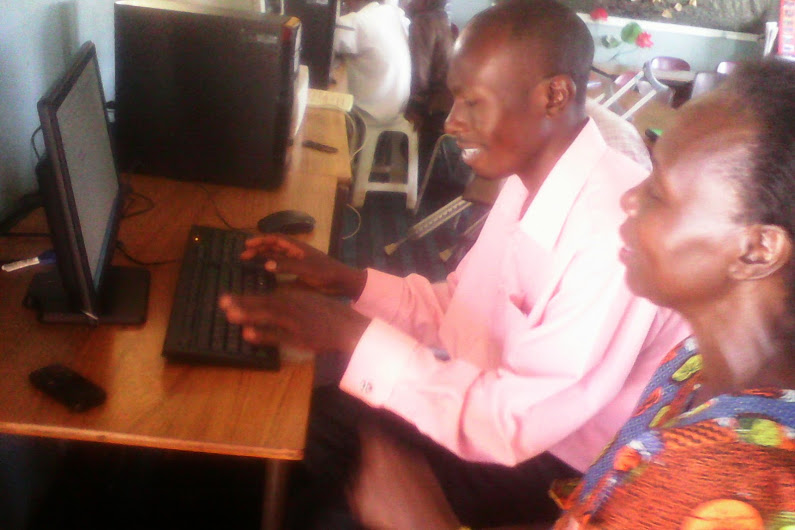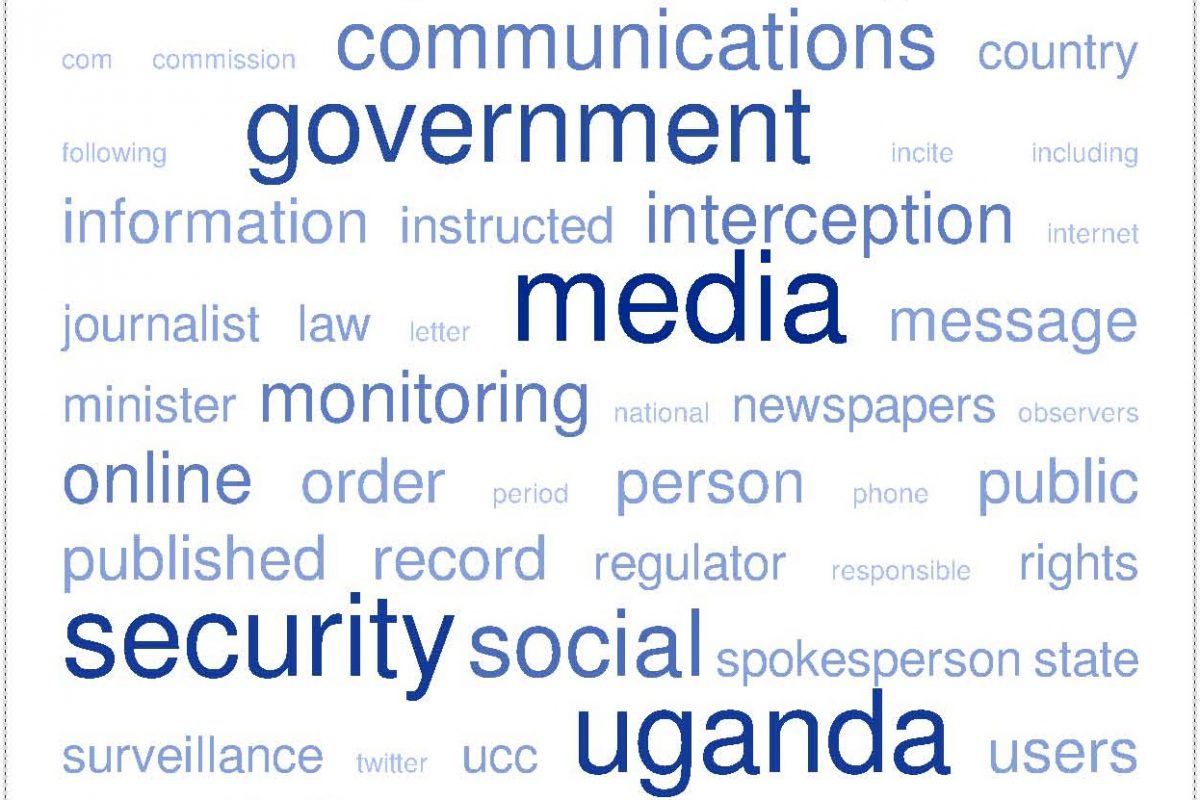The ICT4Democracy in East Africa network will participate in the first Buntwani conference scheduled to take place October 7–8, 2014 in Nairobi, Kenya. The conference is aimed at exploring the potential of Information and Communication Technologies (ICTs) in strengthening citizen engagement and participation in Africa.
The network is made up of organisations pursuing projects that are tackling issues such as corruption, service delivery, respect for human rights, and civic engagement in Kenya, Uganda and Tanzania. The shared goal is to collaboratively leverage on ICTs as tools for promoting good governance and democratisation.
As the use of ICTs in East Africa grows steadily, driven by the availability of cheaper smart phones and the popularity of social media platforms, so does the opportunity through which to utilise these very tools and platforms as avenues for transparency and accountability in governance. In Kenya, Tanzania and Uganda, mobile access rates have grown to beyond 50% of the population – with Kenya reporting a 78% mobile access rate, Uganda (52%) and Tanzania (64%). Internet use has concurrently risen. Internet access in Kenya currently stands at 53% of the population, while Uganda stands at 22% and Tanzania (11%). It is upon this foundation that the ICT4Democrarcy in East Africa network pursues its work leveraging on tools including mobile messaging (short message services), FM radio, social media like Facebook and Twitter, toll free call centres, crowd sourcing platforms as well as direct community engagement.
The network is comprised of seven partner organisations including the Women of Uganda Network (WOUGNET), Transparency International Uganda (TIU), iHub Research (Kenya), the Kenya Human Rights Commission (KHRC), the Commission for Human Rights and Good Governance (Tanzania), the Collaboration on International ICT Policy in East and Southern Africa (CIPESA) and Toro Development Network (ToroDev). CIPESA is the regional coordinator of the network which is supported by the Swedish Programme for ICTs in Developing Regions (Spider) and the Swedish International Development Cooperation Agency (Sida).
Network partners primarily work with grassroots based organisations, local governments, policy makers, voluntary social accountability committees (VSACs), the tech community, civil society organisations and media in the use and promotion of ICTs in governance.
At Buntwani, the network partners will be sharing their experiences in sessions on technology for transparency, avenues for citizen participation, and the motivations and demotivations of using ICT tools for governance, among others.
Network project summaries
| Partner | ICT4Democracy in East Africa Project activity |
| CIPESA(ICT4Dem regional coordinator) | The ‘iParticipate Uganda’ project aims to catalyse the role of ICTs in citizens’ engagement and participation in governance. The project documents and publicises open governance, builds the capacity of media, public officials, citizens and other duty bearers in the use of ICTs for democracy, provides support to three grassroots ICT access centres and researches the ICT knowledge, practices and attitudes of citizens in Uganda. CIPESA is also undertaking an analysis of ICT legal and regulatory frameworks in Kenya, Uganda and Tanzania. |
| CHRAGG | CHRAGG has implemented a toll free Short Messaging Services (SMS) platform in Tanzania for citizens to utilise their mobile phones to lodge human rights violations and complaints. The project has targeted women and youth in its campaign which is also increasing awareness of human rights in the country. The campaign to popularise the SMS system includes radio talk shows, prime time TV and radio jingles, distribution of flyers, TV adverts as well as visual and performance acts through dance troupes. |
| iHub | iHub is exploring the interaction between governments and citizens through ICT tools in support of civic participation, service delivery, transparency, accountability and access to information. The insights are being sought in Kenya, Uganda and Tanzania through a series of field studies, focus group discussions, surveys, interactions with developers and literature reviews. The results of this work are expected to aid the implementation of initiatives that use ICT to monitor public services delivery, fight corruption and improve public sector transparency. |
| KHRC | The mentoring of grassroots based Human Rights Networks (HURINETS) in Kenya is key to KHRC’s project. The organisation is partnering with 10 HURINETS to increase their capacities to effectively use ICTs such as crowdmaps, blogs, Twitter and Facebook in their advocacy work and to increase their role in promoting human rights. |
| TIU | A toll free call centre forms the foundation of TIU’s Lira based project. Voluntary Accountability Committees (VACs) are playing the key role of monitoring health service delivery at health centres in remote areas in Lira and Oyam district in Northern Uganda. The project empowers citizens to demand social accountability of health workers in the region. TIU verifies reports of health service delivery challenges from VACs and the public received at the call centre through field visits before raising them with the respective authorities for remedial action. |
| ToroDev | Working with 15 rural advocacy forums and the Rwenzori Journalists Forum, ToroDev is motivating citizen activism in Western Uganda in pursuit of transparency and accountability monitoring. Local FM radio stations are used as hubs for information and knowledge sharing sourced through the internet (social media) and mobile phones (SMS) during which there is active engagement with local leaders and advocacy forum members on critical community issues. |
| WOUGNET | Northern Uganda is the focus area of this project which empowers the local communities in five districts (Apac, Kole, Oyam, Gulu and Amuru) to monitor good governance and service delivery through the use of radio stations, digital cameras, mobile phones, Facebook, Twitter, blogs and the crowd sourcing platform Ushahidi. The project primarily targets women in Community Based Organisations (CBOs) and women groups. |
The Buntwani conference (www.buntwani.org) will see the gathering of government officials, civil society organisations, the private sector, media and other sectoral players to share knowledge and information relating to citizen engagement and participation through ICTs. The conference will also provide a platform for technology innovators to showcase tools that are available for strengthening citizen engagement and participation as well as improvement of service delivery, and discuss with various stakeholders the strategies that have been used to make these tools a success.
Connect with ICT4Democract in East Africa online
Web: www.ict4democracy.org
Facebook: www.facebook.com/ict4dem
Twitter: @ICT4DemEA
Email: [email protected]
About CIPESA: ICT4Democracy in East Africa Regional Coordinator
The Collaboration on International ICT Policy in East and Southern Africa (CIPESA) is one of two centres established in 2004 under the Catalysing Access to Information and Communications Technologies in Africa (CATIA) initiative, which was mainly funded by the UK’s Department for International Development (DfID). CIPESA focuses on decision-making that facilitates the use of ICT in support of development and good governance. Besides the ICT4Democracy in East Africa project, CIPESA is spearheading the Open Net in Africa project (www.opennetafrica.org) to promote internet freedoms in a number of African countries, including Burundi, Ethiopia, Kenya, Rwanda, South Africa, Tanzania and Uganda. Under the Ask Your Government Uganda initiative (www.askyourgov.ug), CIPESA, in partnership with the Office of Prime Minister (OPM) Uganda and the Africa Freedom of Information Centre (AFIC) promotes citizen’s right to access to information.
| Collaboration on International ICT Policy in East and Southern Africa (CIPESA)Plot 156-158 Mutesa II Road, Ntinda, P.O. Box 4365, Kampala, Uganda; Tel: +256 414 289 502 | Email: [email protected] Website: www.cipesa.org | Facebook: www.facebook.com/cipesaug |Twitter: @cipesaug |





